Lambwe Christian School for the Deaf, Kenya - Project 042
Lambwe Christian School for the Deaf is situated in the remote small town of Ogongo near Mbita, in the province of Nyanza on the northwest edge of Kenya. It is about 17 km from Homa Bay on the road to Mbita. In common with most of Kenya, there are few telephone landlines but most people, even the poor it seems, have a mobile phone. In 2008, Safaricom, a subsidiary of Vodaphone installed electricity to a new transmitter in the village so Siloam were able to fund an extension to the school. Margaret Odhiambo, the former Head Teacher, had the foresight to install 3-phase electric wiring to facilitate the future installation of woodworking machinery in the workshop. Although Lake Victoria is only 5 km to the north of the village, due to international treaties, water from the lake cannot be accessed by the folk in this region. Water, or the lack of it, remains a great problem for this part of Kenya and they are heavily dependent on rainfall.
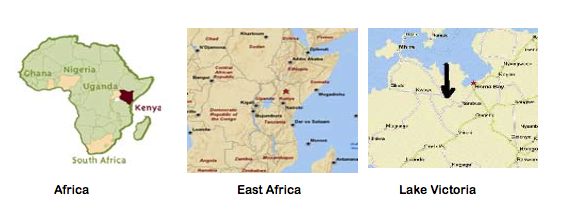
The nearest large town is Homa Bay which has hotels, banks, shops and some government offices. Kisumu, about 140 km to the north, it has a port on Lake Victoria and an airport that links it to Nairobi.
PUPILS:
The original school is a Kenyan government primary school with 86 pupils, 34 boys + 52 girls from year/grade 0 to 9 and they range in age from 5 to 19 years. Most of the pupils live in Nyanza province. They are all boarders, so the school becomes their home for most of the year. Many of the children are apprehensive when it comes to the end of term, as going home to ‘family’ (often distant relatives or just friends), is not easy, as at the school these deaf children can communicate with each other either by lip reading or sign language, they are accepted as part of the community. Often, away from the school, the children experience great loneliness and even rejection and may be even considered ‘stupid.’ About 20 or 30 children are ‘total orphans’ with no known relatives. Where possible, the school encourages and helps pupils maintain contact with their family or friends and training days are arranged for the adults, which are having a positive effect on relationships and attitudes in most cases.
There is a very rudimentary library of books on a few shelves and some education aids. Years ago, there were no toys or sports equipment, no books to read and hobbies couldn’t be engaged in by the pupils after school hours. But this improved with supplies sent or sourced by Martin Mackenzie and others who have helped expose the needs of the school and generated funds to help the children.
Helping with daily chores like fetching water, washing dishes and helping on the ‘shamba’ or farm makes up an important part of the children’s day. Sport days and competitions to help stimulate and lift the spirits of the children are also a great help to the children. These activities can be local (in the school), regional, or national. Through the use of signing, the children play with each other and build close relationships. And, observers watching the children at play are often surprised how quietly the children interact.
Deaf people are just as able in almost every area of human endeavour as hearing people. Hearing people who cannot sign therefore have a disability when it comes to communicating with deaf people. Poor social interaction in the children’s own homes, the lack of resources for speech training and almost no deaf role models in Kenya, add to the difficulties. Some video programmes and books showing how some deaf people have succeeded in life are now used to encourage the children and educate the adults in their lives.
ABOUT THE PRIMARY SCHOOL:
The primary school has the following facilities: 9 permanent classrooms, 2 dormitories, a staffroom for teachers, staff quarters for 2 teachers, 2 workshops for beadwork, looming, polishing and carpentry. The buildings were funded by the Government of Kenya and charitable organisations like Siloam and the National Council for Persons with Disabilities.
TEACHING STAFF:
There are currently 24 members of staff, 7 male and 7 female There are also 10 non- teaching members of staff, 5 male and 5 female. 9 of the teachers are employed by the Government of Kenya and the Board of Governors fund 7 teachers. 1 teacher, and workshop instructor.
There is also an accounts clerk and a secretary, 2 cooks, 2 housemothers, 1 groundsman and 3 watchmen for security.
The staff are all very caring, hardworking and dedicated. Although this is a Kenyan state school, the money available falls far short of even basic needs and has to be topped up with funds from school fees and donations from a variety of sources but mainly Siloam Christian Ministries in the UK. Two members of staff have formal training in Kenyan sign language and the former Head Teacher Margaret Odhiambo provided exceptional vision and leadership.
In early 2023, a special secondary school was added on the same site but kept separate from the primary school from where the older primary school pupils are transferred. At the beginning of 2025, the special secondary school now has 22 boys and 20 girls, enrolled for their studies. The secondary school pupils are accommodated in separate dormitories onsite.
When the pupils/students by then, finish their secondary education, they are offered the opportunity to go on to perform vocation training elsewhere or if exceptionally talented, they can apply for college education if sponsored for the cost.
COMMUNITY OWNERSHIP AND MANAGEMENT:
The school was started by a member of the local community but over the years, it has faced painful opposition from many of the locals because it supports children who were considered to be ‘cursed.’ There is still a traditional belief in this part of Africa that if you have a disabled child, it is because you have committed a great sin or angered the spirits in some way which has brought about the child’s disability (similar attitudes were widespread in Europe until a few centuries ago).
The School Board of Governors are mainly committed Christians who work tirelessly and with enormous dedication to the school. The Anglican Bishop, Rt Rev James Ochiel, has appointed a deaf vicar who can sign to serve in the local parish. This local vicar, Joseph Muga, tells how friends from abroad formerly sponsored him to receive an education and a hearing aid that enables him to minister to both deaf and hearing parishioners.
KENYA SIGN LANGUAGE, KSL:
KSL is a fully developed and unique sign language. As with all sign languages, it is a ‘work in progress’ and new words are created all the time. The alphabet they use is almost identical to the American Sign Language. Yorke Rodda a former volunteer who visited the school in 2005 said, “Pupils were able to teach me how to sign the alphabet, count and many of the common words. The pupils are wonderful teachers and so are keen to communicate! A group of the little children told me about the food they love: chicken, beef, mutton … and I understood it all.”
USE OF THE LAND:
The school has a reasonably large ‘shamba’ or plot of land where they grow maize and graze cattle when there is water enough to support them. Despite input from the International Centre of Insect Physiology and Ecology (ICIPE) in Mbita, the crops are continually failing due to lack of rain.
There are two full-time members of staff taking care of the ‘shamba’ and any animals there are if rain permits. If there was more water, a great deal more could be achieved towards being self-sufficient. This is another reason why a secure water source such as a bore hole is vital but this is an expensive undertaking and some will argue it is not good for the ecology.
However, the school has been very successful in harvesting rainwater from the existing roofs by providing guttering and storage facilities for the water collected. At present, there are 11 large plastic water tanks, 10 of which have been supplied by Siloam Christian Ministries and another by World Vision. The school also has a 50,000-litre concrete tank funded through cost sharing with the Anglican Church of Kenya.
Since the beginning of 2020, Siloam has been able to send funds to Lambwe for the improvement of the buildings and the installation of more water harvesting equipment. We have spent more on the buildings because the children for most of 2020 were at home due to the ‘Covid-19’ pandemic lockdown.
PARENT AND FAMILY SUPPORT:
The view of most Kenyans, even parents and family members of deaf children, is that they will never be able to work for an employer. Paying school fees for a deaf child is a very low priority. Slowly the school has managed to get parents or carers to understand that the school is only partially funded by the Kenyan State and donors like Siloam. The school makes a real effort to inform family and community about deafness. The school fees requested are very small and are often waived so that a needy child is never turned away.
If you feel you want to make a life better for a Kenyan deaf child, then your investment in helping a child at the Lambwe Christian School for the Deaf, will be deeply appreciated. Children can be helped by a regular gift to Siloam each month, thereby, giving you a feeling of personal involvement. Gifts are greatly welcomed so that we can improve the quality of life for these deprived children who deserve a better lot in life.
Please don’t forget to increase the value of your donation at no cost to yourself, by accessing the ‘gift aid’ declaration page so that your donation can be increased by 25%.
Want to make a donation by bank transfer?
We would welcome larger donations by bank transfer to save PayPal fees. To make a donation, please log onto your bank online or call them and use the following details to make a payment: Siloam Christian Ministries, Account Number: 00932329, Sort code: 60-12-35 Bank Address: NatWest, 59 The Parade, Leamington Spa, CV32 4ZX. Please Quote Reference: Project: 042, your Initials and Surname.
CLICK HERE FOR THE LATEST NEWSLETTER
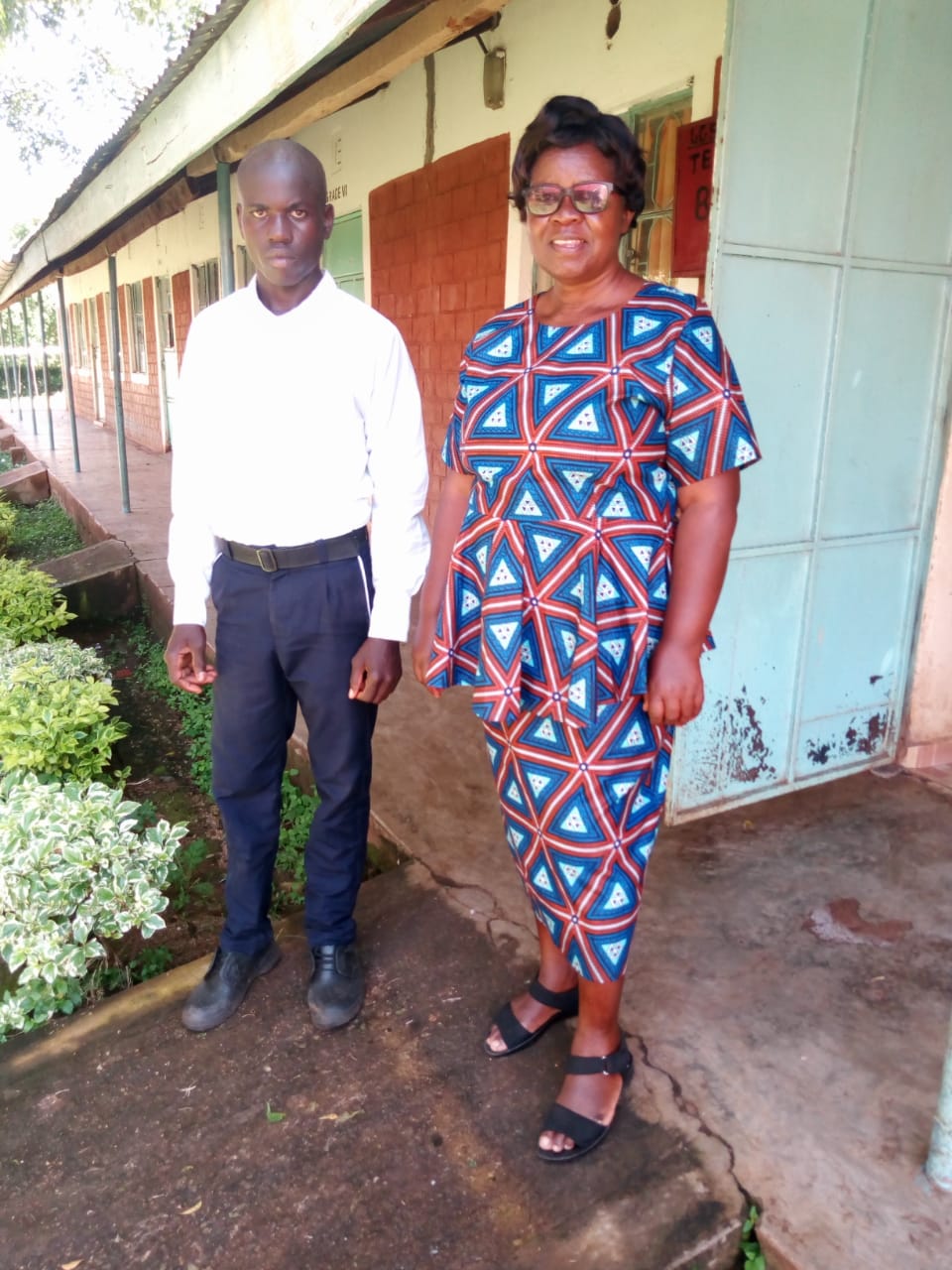
Mrs Janet Nyangasi ( ECD-Early Child Development Manager)
and sponsored child Emmanuel Wati.
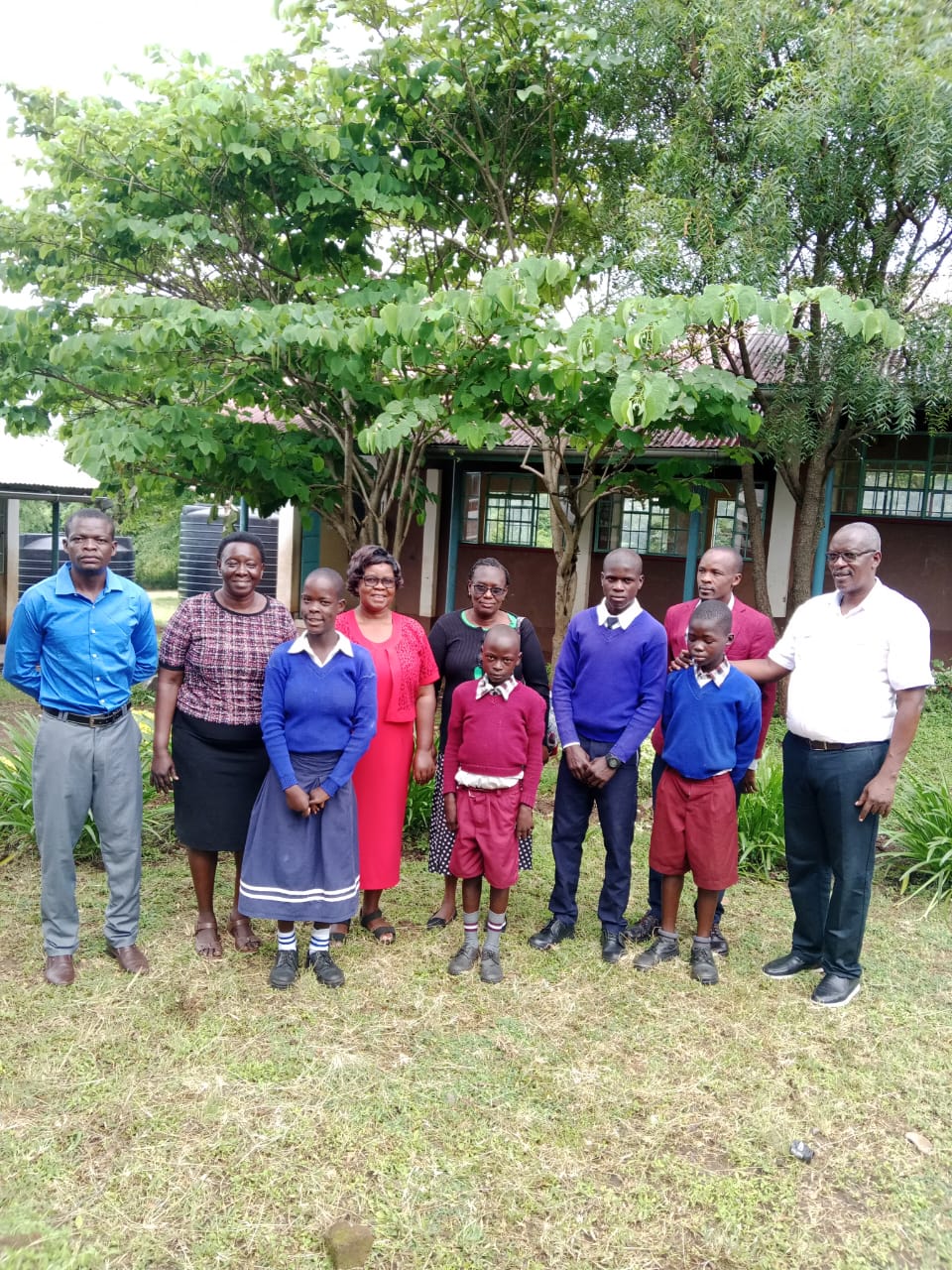
ECD Manager, Mrs Janet Nyangasi (in red dress)
and other teachers with some pupils.

Boys and girls who attend the Lambwe Primary School.
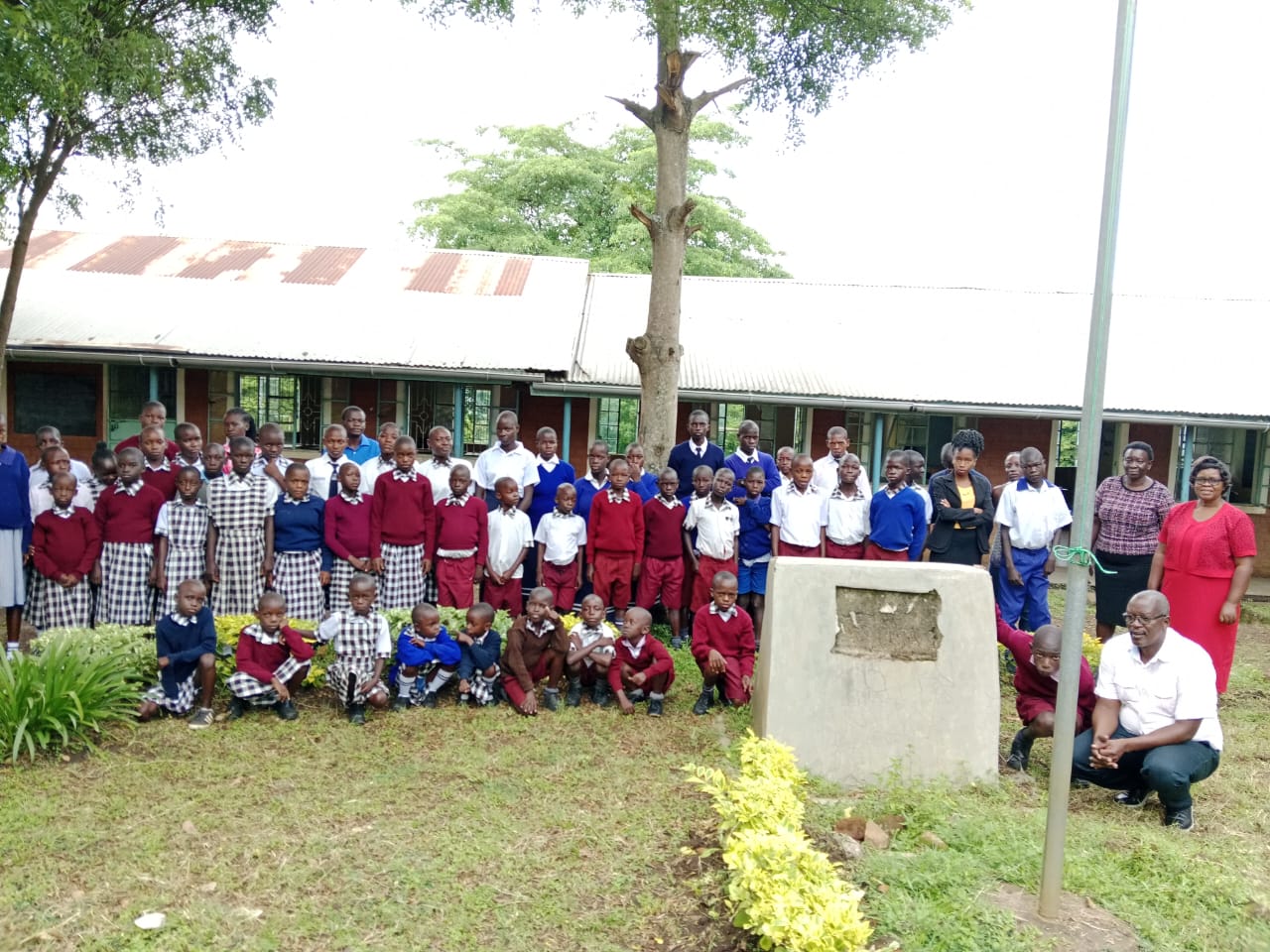
Pupils with their teachers, (the large stone structure in front of the teachers and pupils was unveiled in 2017 to commemorate the original visionary, Mrs Nelda Kroll who helped to get the school established).
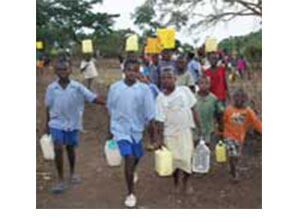
Picture taken by Benson, a Class 5 pupil
passionate about photography.
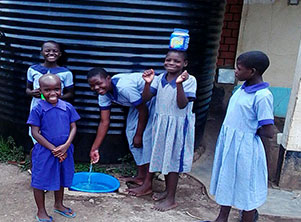
Students fetching water.
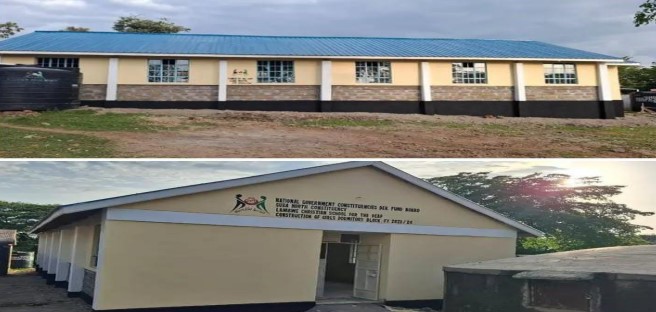
New girls dormitory (completed in early 2025).
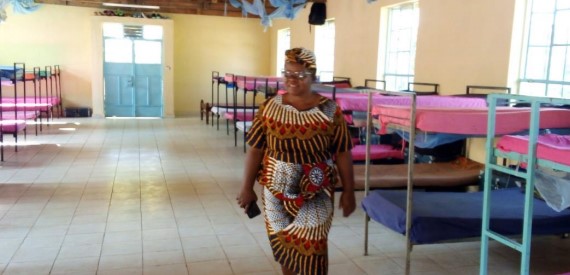
Inside the new girls dormitory.
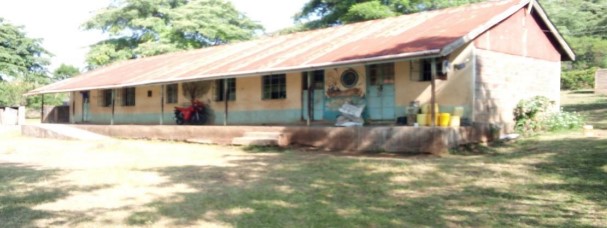
Boys dormitory
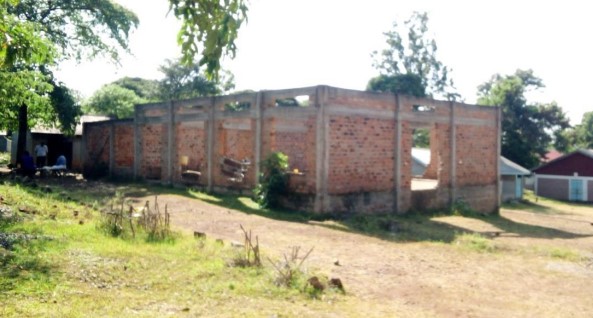
Incomplete dining hall (current state since 2017, funding required to finish).

The current kitchen facilities are inadequate.
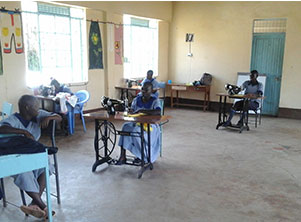
Vocational training students.
